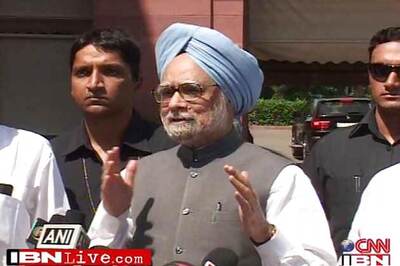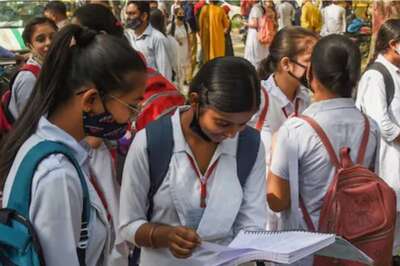
views
New Delhi: Uncertainty hangs over fate of CBI chief-in-exile Alok Verma even after a month of him going to court. Curiously, the court proceedings also appear to be incertitude, lacking definiteness in its approach and direction.
When Verma's lawyer Fali S Nariman argued for the first time in October before the bench led by Chief Justice of India Ranjan Gogoi, the veteran lawyer raised only the points of law. Then, the CJI decided to rather go into the merits of the allegations made against Verma by his deputy Rakesh Asthana.
The court, at that point, chose not to examine the legality of the CVC's recommendations and the subsequent order passed by the government to strip Verma off his powers as CBI director. Nariman, too, accepted the court's suggestion, given the fact that a former Supreme Court judge was being tasked with the duty to monitor and ensure fairness in the inquiry.
After the inquiry report was given to the court in a sealed envelope, the bench, adhering to the principles of natural justice, gave Verma the opportunity to respond to what had been described by the CJI as "very uncomplimentary" remarks made against the CBI chief in this report.
Many, including Asthana, complained against the confidentiality of the report and Verma's reply but the bench was unequivocal that the secrecy was meant for protecting the reputation of the individual officer and the public confidence in the CBI.
So far, so good.
But on the last date of hearing, the proceedings changed track abruptly. The court now wanted to hear the arguments in law regarding the ouster of Verma, something which was proposed by Nariman on the very first day of the case.
It heard Nariman, lawyers for NGO Common Cause, Congress leader Mallikarjun Kharge and all the intervenors at length.
The day-long hearing also witnessed Attorney General KK Venugopal making an intriguing submission that the Selection Committee, comprising the Prime Minister, CJI and the leader of the single largest party in opposition, had to only recommend a name for the CBI director but the government remained the appointing authority.
The bench did not question the top law officer whether his contention meant the government has the authority to reject a name recommended by the Selection Committee.
As the hearing on that day drew to a close, Justice Gogoi also observed that the rest of the arguments on the points of law will conclude on the next date and then the court will take a call on going through the inquiry report.
The bench asked the AG why the government has not replied to the report, only to be reminded that the court had ordered that it is only for Verma to respond at this stage. The CJI then said that if the court were to go into the report, it will seek replies from the Centre and the CVC.
One would wonder if the Supreme Court has the option of not going into the report after it has publicly disclosed that the CVC inquiry report has returned some "very uncomplimentary" findings against Verma.
Will the court be able to shut its eyes despite such findings against Verma? Will the court not examine Verma's explanations? What happens to the principle of institutional integrity?
Such questions and many more, both on facts and in law, remain answered while the top court goes back and forth. And the clock is certainly ticking for Verma, who is set to retire in February first week.


















Comments
0 comment